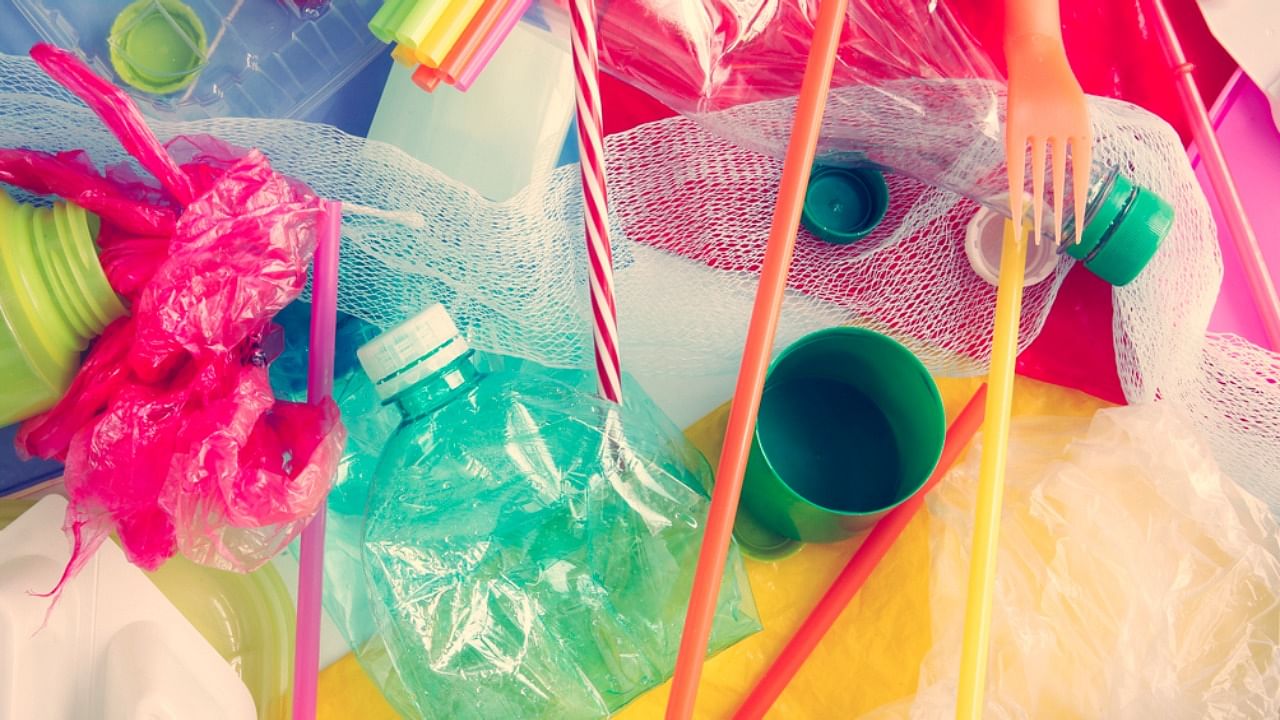
India’s green regulators will create special enforcement teams, set up national and state-level control rooms and provide a portal for the common man to lodge complaints as the Centre is set to implement a nationwide ban on single-use plastics from July 1, marking the first step to reduce an enormous load of discarded plastic items contaminating the environment.
Union Environment Minister Bhupender Yadav on Tuesday said the government had given enough time to the industries to migrate to eco-friendly options and he hoped for a smooth transition with support and cooperation from the industry with whom a list of alternatives had been shared.
The notification for the ban was issued on August 12, 2021, giving the industry nearly 12 months to look for and switch to greener options.
The list of banned items includes earbuds and balloons with plastic sticks, plastic flags, candy sticks, ice-cream sticks, polystyrene (thermocol) for decoration, plastic plates, cups, glasses, cutlery such as forks, spoons, knives, straw, trays, wrapping or packaging films around sweet boxes, invitation cards, wrappers of cigarette packets, plastic or PVC banners less than 100 micron and stirrers.
“We are phasing out those single-use plastic items that have low utility, high littering potential and for which alternatives are available,” Yadav said here at a briefing.
India’s known annual production of single-use plastic is around 2.4 lakh tonnes generated in 683 registered units. But there are many unregistered units as 10-35 per cent of India’s plastic waste comes from single-use plastics, as per the Central Pollution Control Board. In 2020-21, India generated 41.27 lakh plastic wastes.
On the ubiquitous plastic carry bags, officials said the rules prohibit the manufacture, import, stocking, distribution, sale and use of plastic carry bags having a thickness less than 75 microns with effect from September 30, 2021, and having a thickness less than the thickness of 120 microns with effect from December 30, 2022.
While several industry players approached the ministry to defer the implementation plan citing inflation, Yadav said he met the industry representatives and hoped for their cooperation in phasing out the single-use plastics.
The states have to identify the hotspots in cities and clean them. Also, the plan is to clear all the legacy dumping sites in forest areas in the next five years.
Officials said plastic used for packaging in the FMCG sector was not banned but would be covered under the Extended Producer Responsibility (EPR) guidelines. Producers, manufacturers, and brand owners will have to ensure the collection of such plastic back from the market.
Under the EPR scheme, notified in February 2022, the manufacturers are to collect and recycle 70 per cent of the plastic they use. The limit would go up to 100 per cent from the next financial year. Also, 80 per cent of the re-collected plastics have to be recycled creating a circular economy of plastic packaging waste while 20 per cent can be disposed of.
Asked if any action will be taken against people found violating the ban, a senior official said, "Violation of the ban will be considered violation of the Environment Protection Act, 1986 which is a criminal offence. These punitive actions have been detained under Section 15 of the Act. Municipal corporations can also take action against violators according to their bye-laws."
Section 15 of the act says: "Whoever fails to comply with or contravenes any of the provisions of this Act... shall be punishable with imprisonment for a term which may extend to five years with fine which may extend to one lakh rupees, or with both. If the failure or contravention continues beyond a period of one year after the date of conviction, the offender shall be punishable with imprisonment for a term which may extend to seven years."
